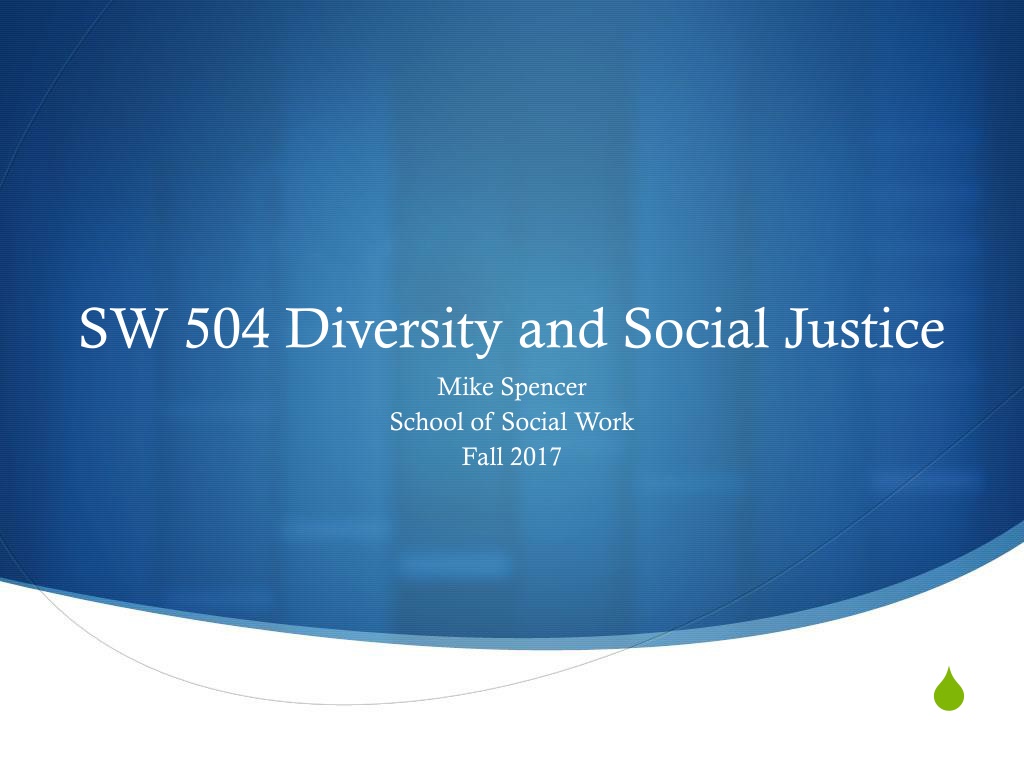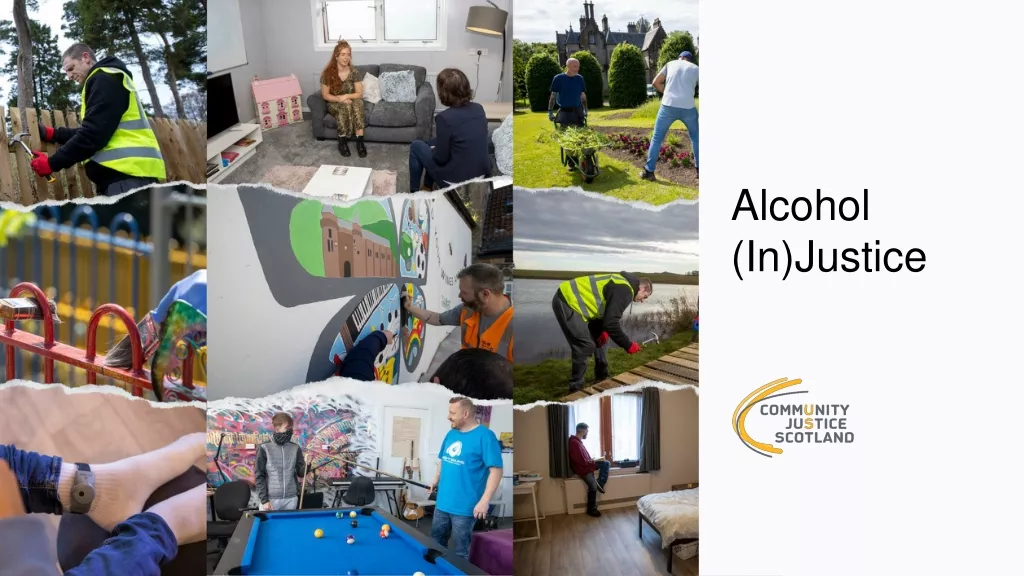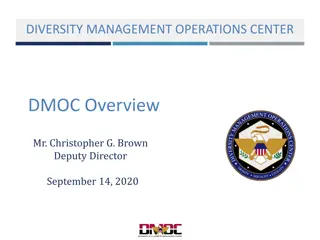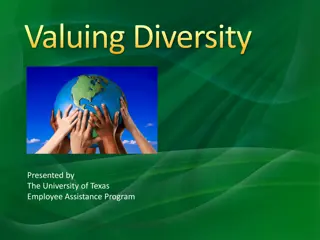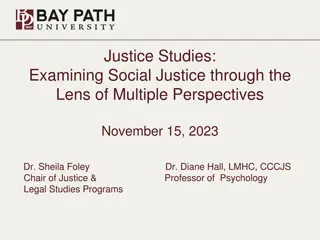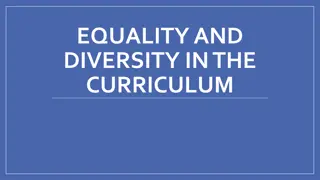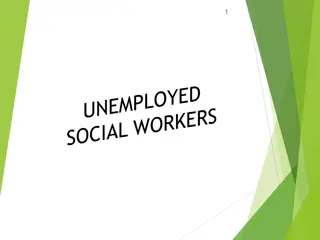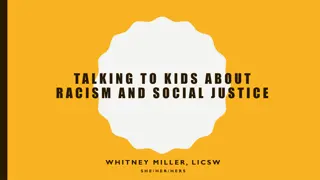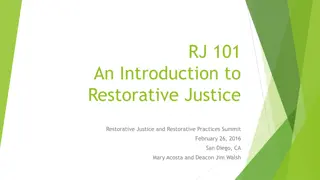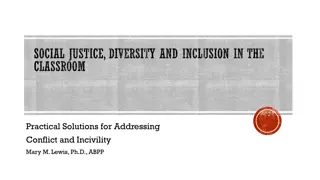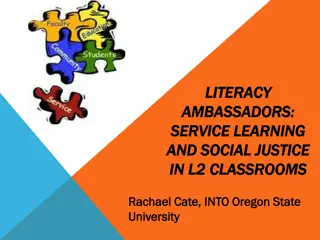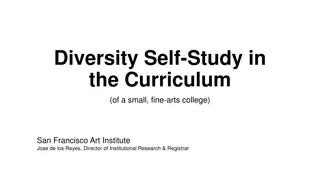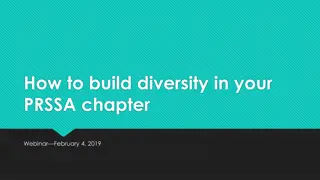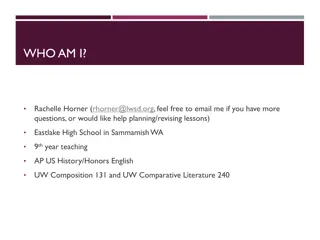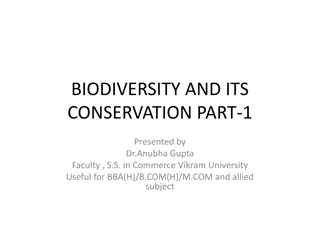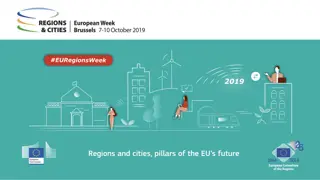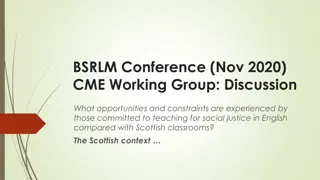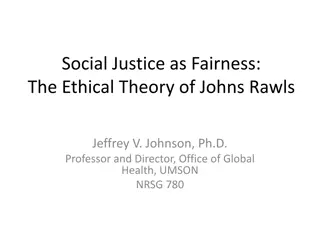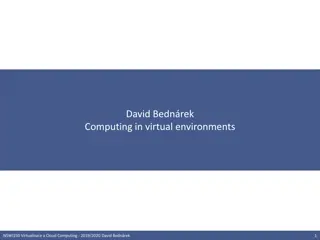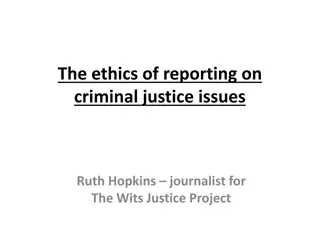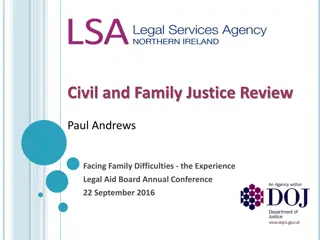Exploring Diversity and Social Justice in Learning Environments
Delve into concepts such as comfort zones, learning edges, safety, triggers, ground rules, and defining culture in the context of promoting diversity and social justice in educational settings. Discover the importance of challenging ourselves to expand our comfort zones, creating safe spaces for dialogue, being mindful of triggers, and respecting diverse perspectives to foster a more inclusive environment.
Download Presentation

Please find below an Image/Link to download the presentation.
The content on the website is provided AS IS for your information and personal use only. It may not be sold, licensed, or shared on other websites without obtaining consent from the author. Download presentation by click this link. If you encounter any issues during the download, it is possible that the publisher has removed the file from their server.
E N D
Presentation Transcript
SW 504 Diversity and Social Justice Mike Spencer School of Social Work Fall 2017
Comfort Zone Comfort zone: Topics or activities we are familiar with or have lots of information are solidly inside our comfort zone. Inside our zones, we are not challenged. Outside our zones, we are challenged. Too far outside, we may withdraw or resist new information.
Learning Edge Being on the edge of of our comfort zone When we are on the learning edge, we are most open to expanding our knowledge and understanding. Our goal is to learn to recognize when we are on the edge of our comfort zone and challenge each other and ourselves to expand our zone of comfort. We hope to go to the learning edge and challenge each other to stay through the discomfort.
Safety Safety: Create an environment in which people feel safe to take risks and be open. Safety does not equal comfort. We must try to create safety in a group where people may have very different definitions of safety and what they need in order to take risks. What would you need in order to feel safe within the class/within your groups? What would you need in order to push your comfort zones?
Triggers Words and phrases that stimulate an emotional response because they tap into anger or pain about oppression issues. Trigger may convey, consciously and unconsciously, a stereotypical perception or an acceptance of the status quo. Triggers are learning opportunities for everyone-- examples??
Ground Rules Listen respectfully to different perspectives Respect each other s views. Be critical to ideas, not individuals. Commit to learning, not debating. Avoid blame, speculation, and inflammatory language. Set boundaries for sharing Speak from experience and avoid generalizing about groups of people Respect confidentiality Share air time
Defining Culture Culture includes all of the expectations, understandings, beliefs, or agreements which influence the behavior of members of some human group. These shared ideas need not be conscious, but they are always transmitted by social learning, and they constitute one set of solutions to the adaptive problems facing every human society
The Meaning of Culture Culture does not consist only of our external environment, but also through our cognitive processes. Culture includes our internal psychological schemas of meaning and action, frame of references, world view in interaction with the social and physical environment--both conscious and unconscious
Changing Culture Culture is historical Culture is dynamic and always changing Change happens within a political context Understand the social, political, and historical implications of change Change for the better?
Culture and Intervention Assume change for the better, rational, efficient, scientific--make them more like us We use our reality, our world view, as the basis for this assumption We unconsciously assume that others share this world view--that the costs and benefits of attitudes and behaviors are the same
Defining Privilege We don t need to think about it because we are surrounded by others who share this same world view--we assume it is universally available and normal. Privilege: Unearned access to resources only readily available to some people as a result of their social group membership. Social Power: Access to resources that enhance one s chance of getting what one needs or influencing others in order to lead a safe, productive, and fulfilling life.
Personal and Group Identity z Is it possible to separate our individual identities from our social group memberships. z Oppression cannot be understood in individual terms alone. People are privileged or oppressed on the basis of social group status. z One of the privileges of dominant group status is the luxury of simply seeing oneself as an individual.
The Complexity of Identity Our identities are complex They are not always easily identified Many questions are raised as we develop our identity Identity is dynamic, non-linear, and a product of our social, political, and economic environment.
